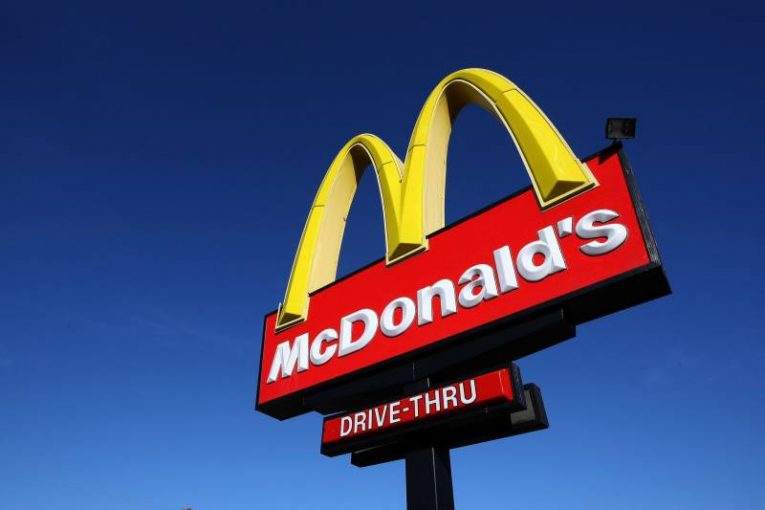

By Ariel Abdallah and Dylan Ferguson
Fifty-three Black McDonald’s franchisees have filed a major civil rights lawsuit against McDonald’s, charging they have been the victims of the discriminatory nature of McDonald’s and demanding a jury trial.
Plaintiffs are members of a federally-protected class who owned and operated McDonald’s restaurant(s).
The pleading argues McDonald’s steered potential Black owners to locations with low-volume sales and higher operating costs, and denied them meaningful support to allow them to overcome financial hardships, while white franchisees were routinely provided such assistance.
The allegations against the defendant (McDonald’s Corporation) are based on the fact that instead of offering each plaintiff an “opportunity to invest in and become a part of America’s best-known international corporation,” McDonald’s intentionally impeded “plaintiffs’ ability to succeed and grow within the franchise they dedicated their lives to”, which undermines the purpose of 42 U.S.C. §1981.
Evidence to be presented include claims that the average annual sales of the plaintiffs’ was “more than $700,000 under McDonald’s national average of $2.7 million between 2011 and 2016, and $2.9 million in 2019,” the cash flow gap between Black and white franchisees tripled between 2010-2019, and how the number of Black franchisees have been cut in more than half since 1988, while “the total number of McDonald’s franchised  restaurants more than doubled.”
restaurants more than doubled.”
When the plaintiffs first signed on with McDonald’s, they were unaware of the fraudulent practices that would be committed against them, they maintain, adding they only became apparent when “viewed in light of the later acts establishing a pattern of systematic and covert racial discrimination targeted against Black franchisees,” according to the legal filing.
Ultimately, these unnecessary hardships caused the plaintiffs to have no other choice but to exit their agreements with McDonald’s, at a loss. Many plaintiffs entered the franchise system in order to develop businesses that they could later pass on to their children.
On June 16, the McDonald’s Chief Executive Officer, Christopher Kempczinski, claimed that they have “created more millionaires within the Black community than probably any other corporation on the planet.”
But the pleading noted tht it was obvious that little progress has been made since 1996, and it is inexcusable for a corporation of this size to no longer be accountable for their actions.
In 1996, the Executive Vice President of McDonald’s confessed the lack of parity in the company was due to the placement of Black franchisees. The company’s business decisions hindered the Black businesses’ economic success in comparison to white McDonald’s franchisees.
Consequently, the plaintiffs claim, McDonald’s set temporary goals and plans to achieve parity, but none of which were successful. In order to ensure commitment to these aspirations, the NBMOA started negotiations. The committee stated, “We deserve and will demand nothing less than equal treatment…We have nothing to fear.”
Eventually, Don Thompson became the first Black President of McDonald’s USA. He was replaced by Easterbrook in 2015 after serving for three years.
The pleadings claim Easterbrook and his successor, Kempczinski actively discriminated against Black franchisees using initiatives like the Bigger Bolder Vision 2020. As CEOs, they aimed to restrict Black franchisees to higher costing locations and denied them rent relief. These policies evidently caused over 200 of 400 Black franchisees to end their contracts.
The Guster-Hines Complaint was filed January 7 by two McDonald’s executives and alleged that opportunities were purposefully given to white franchises and the goals neglected in 1996.
In 2019, the Chairman of NBMOA told the company that their leadership moved backwards. Tripplett supported his claim with the loss of sales to African American customers and asserted, “We need change now.”
The sit points out that it was to no avail, that Black franchisees continued to experience higher insurance rates, security costs and employee turnover rates. These conditions contrasted sharply with white franchisee conditions.
And the suit noted that Black franchisees were urged to take whatever the franchise system offered them, despite being denied preferred locations again and again – these environments were often so dangerous that Plaintiffs had to carry licensed firearms as safety precautions.
Many also had to rebuild and remodel their stores which only drove the plaintiffs into debt. These investments were often required by McDonald’s. When Black franchisees were unable to meet the requirements, they were forced out and replaced by white franchisees who did not have to make such significant investments.
The Plaintiffs insist they were consistently offered store locations in impoverished, crime ridden neighborhoods for no other reason than their race. Additionally, McDonald’s continued opening stores within miles of each other, worsening competition in already over saturated markets.
Despite a multitude of requests for rent reduction, financial restructuring and security, McDonald’s refused and instead granted these opportunities to white franchises. McDonald’s targeted Black franchises with harsh business reviews and overly frequent inspections. These discriminatory practices were hidden by McDonald’s by dealing with plaintiffs on an individual basis, the pleading notes.
To sign up for our new newsletter – Everyday Injustice – https://tinyurl.com/yyultcf9
Support our work – to become a sustaining at $5 – $10- $25 per month hit the link:
